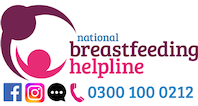This information can also be viewed as a PDF by clicking here.
The information provided is taken from various reference sources. It is provided as a guideline. No responsibility can be taken by the author or the Breastfeeding Network for the way in which the information is used. Clinical decisions remain the responsibility of medical and breastfeeding practitioners. The data presented here is intended to provide some immediate information but cannot replace input from professionals.
| First-line treatment inhale steam frequently; if medication is required use decongestant nasal spray containing xylometaxoline or Oxymetazoline. AVOID decongestant tablets, powders or drinks. |
Many people take decongestant tablets, powders and lemon drinks when they have a cold or sinus pain. Although they are unlikely to affect a breastfeeding baby they have a potential significant impact on milk supply and should be avoided during breastfeeding.
Inhaling steam is a cheap and effective means of reducing congestion and should be used frequently before resorting to drugs. Decongestant sprays are as effective and have no effect on supply as they only work locally in the nasal passages.
Pseudoephedrine is secreted into breastmilk in low levels. In one study (Findlay 1984) the calculated dose that would be absorbed by the infant was very low (0.4 to 0.6% of the maternal dose). However in a study of 8 women a single 60 mg dose of pseudoephedrine reduced milk supply by 24% over a 24 hour period. This could be explained suggest the authors by a drop in prolactin which was greater in those with babies older than 60 weeks (Aljazaf 2003). Anecdotally some mothers have reported wakefulness. Mothers reported irritability in 20% of infants exposed to pseudoephedrine in one study of breastfeeding mothers (Ito 1993).
Phenyephrine is poorly bioavailability (not well absorbed from the gut) so it is not likely to produce effects in a breastfed infant with normal doses. Because of pseudoephedrine’s effect on milk production, concerns exist that phenylephrine may suppress milk although there is no evidence that this occurs.
Brand names include: Sudafed, Lemsip, Beechams, and Benylin. Pharmacy own brands are also available.
It is recommended that breastfeeding women AVOID decongestant tablets, powders or drinks.
Decongestant nasal sprays containing xylometazoline, oxymetazoline are effective in relieving nasal congestion but do not produce wakefulness nor reduce milk supply. They are safe and effective but should not be used long term (more than 7 days). Brand names include Otrivine and Sudafed. Pharmacy own brands are also available.
I have been asked about using pseudoephedrine to dry up milk supply or reduce engorgement. There is no research to support this and I could not advocate or support this as a pharmacist.
For more information on cough and cold remedies when breastfeeding please see https://www.breastfeedingnetwork.org.uk/cold-remedies/
Bibliography
- Aljazaf K, Hale TW, Ilett KF, Hartmann PE, Mitoulas LR, Kristensen JH, Hackett LP. Pseudoephedrine: effects on milk production in women and estimation of infant exposure via breastmilk. Br J Clin Pharmacol 2003; 56(1):18-24
- Findlay JW, Butz RF, Sailstad JM, Warren JT, Welch RM. Pseudoephedrine and triprolidine in plasma and breast milk of nursing mothers. Br J Clin Pharmacol 1984; 18(6):901-906.
- Hale TW Medications and Mothers Milk
- Ito S, Blajchman A et al. Prospective follow-up of adverse reactions in breast-fed infants exposed to maternal medication. Am J Obstet Gynecol. 1993;168:1393-9.
- Jones W Breastfeeding and Medication (Routledge 2018)
- Lactmed https://www.ncbi.nlm.nih.gov/books/NBK501922/
©Dr Wendy Jones MBE, MRPharmS and the Breastfeeding Network March 2022

